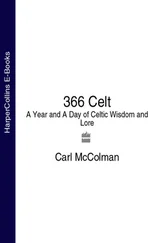Carl Engel - Musical Myths and Facts, Volume 2 (of 2)
Здесь есть возможность читать онлайн «Carl Engel - Musical Myths and Facts, Volume 2 (of 2)» — ознакомительный отрывок электронной книги совершенно бесплатно, а после прочтения отрывка купить полную версию. В некоторых случаях можно слушать аудио, скачать через торрент в формате fb2 и присутствует краткое содержание. Жанр: music_dancing, foreign_antique, foreign_prose, на английском языке. Описание произведения, (предисловие) а так же отзывы посетителей доступны на портале библиотеки ЛибКат.
- Название:Musical Myths and Facts, Volume 2 (of 2)
- Автор:
- Жанр:
- Год:неизвестен
- ISBN:нет данных
- Рейтинг книги:5 / 5. Голосов: 1
-
Избранное:Добавить в избранное
- Отзывы:
-
Ваша оценка:
- 100
- 1
- 2
- 3
- 4
- 5
Musical Myths and Facts, Volume 2 (of 2): краткое содержание, описание и аннотация
Предлагаем к чтению аннотацию, описание, краткое содержание или предисловие (зависит от того, что написал сам автор книги «Musical Myths and Facts, Volume 2 (of 2)»). Если вы не нашли необходимую информацию о книге — напишите в комментариях, мы постараемся отыскать её.
Musical Myths and Facts, Volume 2 (of 2) — читать онлайн ознакомительный отрывок
Ниже представлен текст книги, разбитый по страницам. Система сохранения места последней прочитанной страницы, позволяет с удобством читать онлайн бесплатно книгу «Musical Myths and Facts, Volume 2 (of 2)», без необходимости каждый раз заново искать на чём Вы остановились. Поставьте закладку, и сможете в любой момент перейти на страницу, на которой закончили чтение.
Интервал:
Закладка:
THE MODE ASBEIN
A modern writer on Arabic music, as it is practised in Algiers and Tunis, mentions among the various Modes used at the present day a peculiarly impressive one, called Asbein, which the Mohammedans believe to have been especially appropriated by Satan for the purpose of tempting man. They have a long story respecting its origin and demoniac effects. The writer alluded to, a Frenchman, had the gratification of hearing a piece or two played in this Mode by a musician, who had the reputation of being one of the best performers in Tunis, and who used to entertain the frequenters of a certain coffee-house in a suburb. To this place the Frenchman repaired, and induced the musician to play in the Mode Asbein. To surmise from his description of the performance, there must have been something really frightful in the degree of ecstacy which the player exhibited. But there is something funny in the Frenchman's mode of reasoning, which deserves to be noticed, because it shows how opinions like the above are sometimes adopted readily enough even by professed sceptics. The Frenchman was a sceptic, and had made up his mind before he proceeded to examine the matter, that the impression of the Arabs respecting the Mode Asbein was due entirely to their religious enthusiasm. They are, of course, Mohammedans. Now, after the performance, the Frenchman accidentally learnt that the musician was a Jew. Then he no longer doubted the demoniac power of the Mode Asbein.
WITCHES
Respecting the music of witches, a few short remarks may suffice. Every one knows that witches, at their meetings, amuse themselves especially with music and dancing. In Germany, the largest assemblages of these objectionable beings take place in the night of the first of May (Walpurgis), and the most favourite resort for their festivities is the summit of the Harz mountain, called Brocken, or Blocksberg. The musicians sit on old stumps of trees, or on projecting rocks, and fiddle upon skulls of horses.
Whoever desires to witness these ghastly scenes must provide himself with the upper board of an old coffin in which a knot has been forced out, and must peep through the hole.
THE CHANGELING
According to an old superstition, which was widely spread during the Middle Ages, the elves sometimes steal a handsome, new-born child from its cradle, and substitute an ill-formed, ugly child of their own. The little Irish prodigy who is the hero of an event which happened in the county of Tipperary, was such a Changeling. The story told of him, it will be seen, is stamped with the peculiar wildness of fancy which generally characterizes Irish fairy-tales.
Mick Flanigan and his wife, Judy, were a poor couple, blessed with nothing but four little boys. Three of the children were as healthy and rosy-cheeked as any thriving Irish boy you can meet with; but the fourth was a little urchin, more ugly than it is possible to imagine; and, even worse, he was as mischievous as he was ugly. Innumerable were the tricks which he played upon his brothers, and even upon his parents. Although before he was a twelve-month old he had already grown a formidable set of teeth, and ate like a glutton, he would nevertheless lie constantly in his cradle near the fire, even after he had reached the age of five years. Resting on his back, and half closing his little eyes, he would observe everything which was going on in the room, watching for opportunities to annoy the people.
Now, one afternoon it came to pass that Tim Carrol, the blind bagpiper, an old friend of the family, called in and sat down near the fire to have a bit of chat. As he had brought his bagpipe with him, they soon asked him to treat them with a tune. So blind Tim Carrol buckled on his bagpipe, and began to play.
Presently the little urchin raised himself in the cradle, moved his ugly head to and fro, and evidently manifested excessive delight at the nasal sounds. When the affectionate mother saw how eagerly the child stretched out both its hands for the bagpipe, she begged old blind Tim Carrol just to humour her little darling for a moment; and as blind Tim was not the man to say "No," he mildly laid the bagpipe upon the cradle. But how great was their astonishment when the urchin took up the instrument, and, handling it like a practised bagpiper, played without the least effort a lively jig, then another, even more lively, and several others, in rapid succession.
The first thing the father did was to sell his pig and to buy a bagpipe for his prodigy. It soon turned out that the rogue had a peculiar tune of his own, which made people dance however little they might feel disposed for dancing. Even his poor mother happening to come into the room one day with a pailfull of milk, and hearing that bewitching tune, must needs let the pail drop, spill all the milk, and spin round like a very top.
About the time when the boy was six years old, the farmer of the village, by whom Mick Flanigan was employed as day labourer, had various mischances with his cattle. Two of his cows lost their appetite, and gave little or no milk. A very promising calf stumbled, and broke both its hind legs. And shortly afterwards one of his best horses suddenly got the colic and died in no time. The people in the village had long since settled among themselves that there was something not right in Mick Flanigan's family; so it naturally occurred to the farmer that the imp with the bagpipe must be the cause of all his misfortunes. He therefore thought it wise to give warning at once to Mick Flanigan, and to advise him to look out for work elsewhere. Fortunately, poor Mick Flanigan soon succeeded in getting employment at a farmer's, a few miles off, who was in want of a ploughman.
On the appointed day the new master sent a cart to fetch the few articles of furniture which Mick Flanigan could call his own. Having placed the cradle with the boy and his bagpipe at the top, the whole family drove off to their new home. When they had got about half the way, they had to cross a river. Slowly they drove upon the rickety bridge, little anticipating the exciting scene which now occurred. The boy had hitherto remained very quiet in the cradle, apparently half asleep as usual. But, just when the cart had reached the middle of the bridge, he raised his head, looked wistfully at the water, and then suddenly grasping his bagpipe he jumped down into the river.
His terrified parents set up a cry of distress, and made some efforts to save him, when, to their unspeakable astonishment, they saw him swimming, diving and gamboling about in the water like a very otter. Nay, he actually began to play on his bagpipe, shouting lustily all the while and exhibiting other signs which clearly showed that he was now in his right element. Soon he disappeared entirely. Then the poor people became fully convinced that the boy was a Changeling, and had now gone home to his own kinsfolk. 21 21 'Fairy Legends and Traditions of the South of Ireland, by T. Crofton Croker; London, 1862,' p. 22. – Compare also 'Hans mein Igel,' in Grimm's Kinder und Hausmärchen.
THE VENDISH SORCERER
The Vends are a Slavonic race inhabiting some districts in Lusatia, Germany. Although living amidst Germans, they still preserve their own language, as well as a considerable number of national songs and legends of their own, some of which are very beautiful.
The Vendish Sorcerer, whose name was Draho, lived in a mountain, near the town of Teichnitz, at the time when the Christian religion was just beginning to take root in Lusatia. He was, of course, a pagan; and every scheme he could devise to hurt the defenceless Christians living scattered about the neighbourhood, he did not fail remorselessly to put into action. Moreover, his great power he derived from a magic whistle, by means of which he made certain mischievous spirits subservient to his will.
Читать дальшеИнтервал:
Закладка:
Похожие книги на «Musical Myths and Facts, Volume 2 (of 2)»
Представляем Вашему вниманию похожие книги на «Musical Myths and Facts, Volume 2 (of 2)» списком для выбора. Мы отобрали схожую по названию и смыслу литературу в надежде предоставить читателям больше вариантов отыскать новые, интересные, ещё непрочитанные произведения.
Обсуждение, отзывы о книге «Musical Myths and Facts, Volume 2 (of 2)» и просто собственные мнения читателей. Оставьте ваши комментарии, напишите, что Вы думаете о произведении, его смысле или главных героях. Укажите что конкретно понравилось, а что нет, и почему Вы так считаете.












